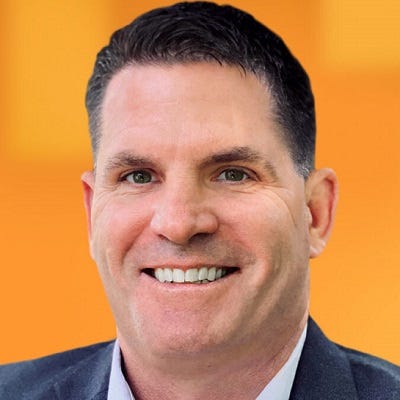Filling the Cybersecurity Talent Gap
Veterans are ideal candidates to close the skills gap and create the industry needed to meet security threats head-on.

COMMENTARY
Our nation is facing some of its greatest challenges ever. Amid rising geopolitical tensions and emerging conflicts, our country's security community continues to face one of its most sophisticated adversaries: hackers.
The increase in nation-state-backed hacking groups means our cyber opponents have more resources and technical prowess than ever before. Their attacks are more sophisticated and the impact has never been greater. They also do not discriminate in their attacks, sparing neither private companies nor government agencies. As the Cybersecurity and Infrastructure Security Agency (CISA) has noted, we are living in a reality that requires collaboration between private and public organizations to meet this new breed of threats.
As the threats we face continue to grow, the industry does not have the cybersecurity workforce ready to meet the challenge. With a significant number of cybersecurity roles unfilled, members of the security industry and Congress have warned we lack the number of experts needed to protect our digital technologies and our national security. Last year, the White House unveiled its National Cyber Workforce and Education Strategy to expand cybersecurity training. It's clear that we need to quickly expand our cyber workforce with individuals who possess the talent and abilities to face these threats.
Thankfully, there is a talented group in the veteran community ready and willing to meet the challenge. Through their unique skills, discipline, and unmatched experience, veterans are perfectly suited to help address the talent gap and growing cyber threats we face. Not only that, but veterans will find that IT and cybersecurity provide a second career as they transition out of their service.
Veterans leave service with a wide range of talents that have several applications outside of the military. This includes both what are often called "soft skills," or those that are beneficial in a number of settings, as well as technical abilities well-suited for cybersecurity and IT. My service in the United States Army taught me skills that have helped me excel in my role at SolarWinds. Below are some of the top skills I have observed from my time in the industry that help our veterans succeed in IT and cybersecurity.
Adaptability: The military requires those in the service to not just adapt to ever-changing environments but also make critical decisions on the fly. In IT, technology is constantly changing. The ability to adapt and learn quickly makes veterans not only highly valuable in IT but also set up to excel, where both the technology and the situations they find themselves in are evolving rapidly.
Problem solving: One of the greatest lessons the military imparts is the ability to solve problems. This is, far and away, one of the most crucial skills anyone can learn. Whether it's finding new ways to approach a problem or devising a solution under high-stakes pressure, veterans often are faced with tackling complex challenges. In IT, we frequently encounter technical problems that require creative critical thinking, and we often are required to think on our feet as we approach new challenges.
Strong work ethic and discipline: A strong work ethic and discipline are essential to creating and maintaining a high-functioning military. This is one of the core skills veterans leave with. It is also one of the most important aspects of succeeding in IT. Meeting deadlines, paying attention to detail, and working diligently are qualities that set veterans apart.
Technical knowledge: In addition to the soft skills that help people navigate the workplace, veterans also have many technical skills that are incredibly valuable in IT. For one, they may already have some of the core technical skills needed to succeed in IT. The military has a robust network of information technology, and many service members gain on-the-job experience with technology, communications, and information security.
Security clearances: Some veterans may have security clearances. This makes them incredibly valuable to organizations dealing with sensitive information. Many IT roles in government agencies or contractors often require security clearances, and arriving on day one with a clearance is a huge leg up.
Security-minded: Security is one of the most important issues the IT and the technology industry face today. Veterans are focused on security and defense and understand the importance of building a secure system that protects our nation. With the industry increasing the security principles used to manage the software and services we use, including emerging technologies like artificial intelligence (AI), we need a workforce that understands the importance of a strong security posture.
As the industry continues to incorporate more secure by design principles that guide how we approach security and cyber resiliency, we need a workforce that understands the importance of security and defense. To make this a reality, we need both the government and private companies to step up and create the right pathways for veterans to enter the workforce. This can include expanding the GI Bill to add additional incentives for careers in cybersecurity. Private companies should also offer more hands-on workshops and training that can both provide a way for applicants to learn and help companies fill their open positions.
As we face some of our greatest cyber adversaries yet, we need a skilled workforce to meet this challenge. Our veterans are the ideal candidates to quickly close the cybersecurity skills gap and create the skilled industry needed to meet these threats head-on.
About the Author
You May Also Like




